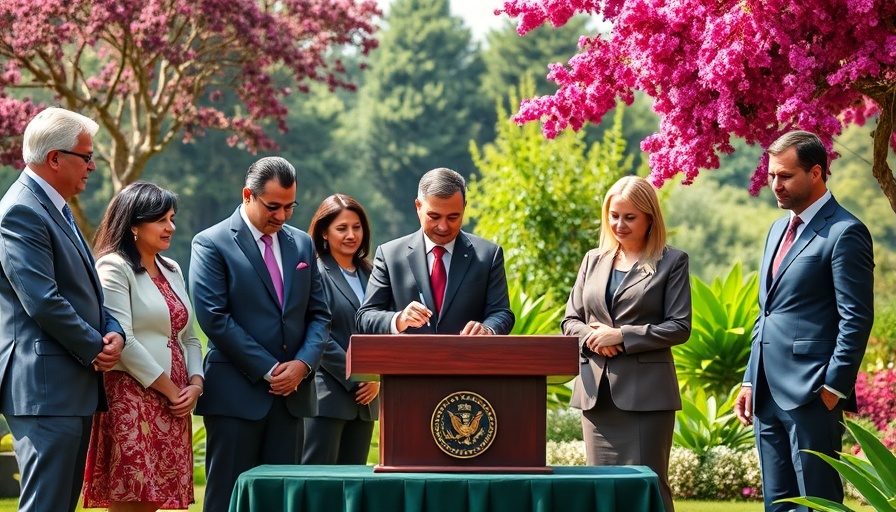
Supreme Court's Groundbreaking Decision: What It Means for Faith-Centered Education
The recent ruling by the Supreme Court has sent shockwaves through the education system, particularly among families who cherish the integration of faith and learning. In a historic move, the Court rejected the nation’s very first religious charter school, which was set to serve a community of Catholic families in Oklahoma. This decision raises critical questions about the role of religious education in public funding and the future of schools designed to uphold spiritual values.
The Heart of the Matter: Understanding Community Needs
For many Christian families, the desire for a faith-integrated education stems from a longing to raise their children with strong biblical values. The proposed charter school aimed to create an environment where academic excellence was paired with spiritual nurturing. Parents believed this would not only foster better academic performance but also strengthen community ties among families who share similar values.
A Historical Perspective on Religious Education
Throughout American history, the debate over religious education has been a contentious one. While the First Amendment offers a foundation for freedom of religion, interpretations of what that means in practice have varied widely. The Supreme Court’s ruling exemplifies ongoing tensions. It reflects concerns that state funding for religious schools could blur the lines between church and state. However, many argue that denying such options limits parental rights and the community’s ability to choose educational settings aligned with their beliefs.
Counterarguments: Diverse Perspectives on School Funding
There are valid concerns on both sides. Proponents of the ruling argue that maintaining a separation between church and state is essential to protecting everyone’s rights. They posited that public funds should remain neutral and not favor one religious group over another. However, families advocating for religious charter schools highlight the need for parents to have the freedom to direct their children’s education based on their values, especially in an increasingly secular society.
Future Insights: Trends in Education and Faith
This ruling may mark a turning point in how faith-based education is viewed within the public schooling system. With a growing number of families seeking options that allow them to incorporate their values into the educational framework, we may see more discussions and potential legal battles surrounding this issue. Watching this space will be essential for families considering their children's educational future.
A Call to Action: Empowering Family Choices
As this dialogue unfolds, it’s vital for families to engage in discussions about their educational options. By staying informed and advocating for the right to choose educational paths that align with their values, parents can help shape a more inclusive system that respects diverse perspectives. We encourage families to explore local educational meetings, connect with community leaders, and participate in advocacy efforts for quality faith-centered education.
In Summary: Faith, Education, and Community
Ultimately, this case and its implications for the future of faith-based education underscore the importance of community and parental engagement. As families navigate these complex choices, fostering discussions rooted in love and understanding can pave the way for more inclusive options in education that honor both faith and learning.
 Add Row
Add Row  Add
Add 








 Add Row
Add Row  Add
Add 

Write A Comment